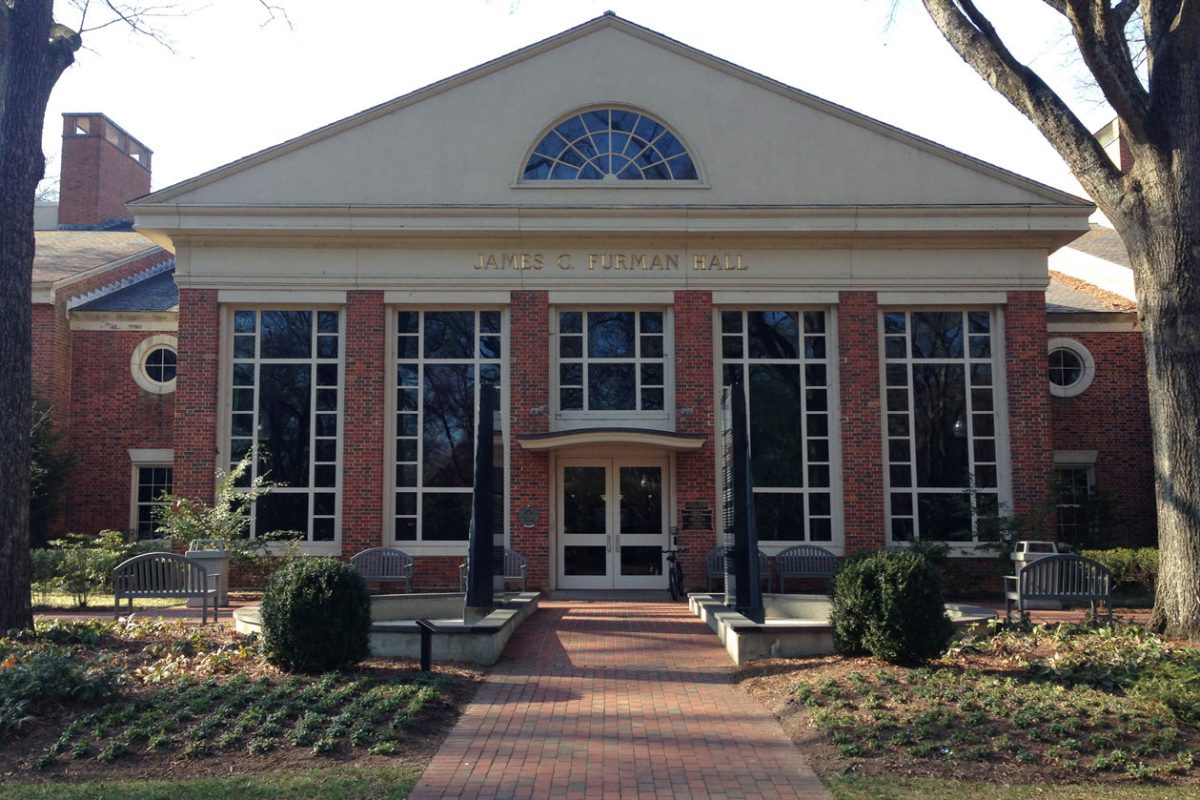
Photo courtesy of Dante Durrman
Over the past few years, Furman has added a number of minors and concentrations, programs that allow students to study a particular topic or subject without committing to the extensive course load of a major. Minors and concentrations are often interdisciplinary, including classes from multiple departments. For example, the Middle Eastern and Islamic Studies minor consists of courses from the history, political science, and religion departments as well as a specific course associated with the minor. The Film Studies minor allows for courses from eight different departments (and a number of freshman seminars) to contribute toward its completion.
The newest of these concentrations, the Humanities interdisciplinary minor, gives students the ability to construct their own plan of study. Requirements for completing the minor include six courses in the humanities, the completion of a thesis, and participation in a symposium.
Although the number of minors has increased drastically in the past decade, Furman still lacks the wealth of minors available at other institutions, where most individual majors have corresponding minors or concentrations. There are good reasons why Furman does not offer as many minors or concentrations as other universities. Fewer minors encourage focused study in particular majors while allowing students to take more elective courses. Offering a minor can also force a department to offer more lower-level courses and cut higher-levels courses, making it more difficult for majors to receive the intensive education they deserve.
However, offering interdisciplinary minors like the Humanities minor also cultivates interdisciplinary study and rewards students who don’t have space in their schedule to complete a major but who wish to pursue focused studies in a particular discipline.
Although the minors and concentrations Furman currently offers emphasize interdisciplinary study, departments that adapt to the number of minoring students may be able to increase the number of students enrolled in their courses, an improvement for more conventional areas of study like the languages and humanities that are currently struggling with lower enrollments.
At their best, concentrations and minors give students the ability to fine-tune the progression of their Furman education, enriching the liberal arts through interdisciplinary study. This change could also increase enrollment in some courses, given that students who cannot commit to a major would be able to complete a minor. Given its structure and course requirements, the new Humanities minor appears to serve this end, allowing students in non-humanities majors to pursue an in-depth course of study in the humanities and languages without committing to an additional eight to ten courses.
The shift toward flexibility that the Humanities minor represents should increase, not diminish, the rigor and depth of a Furman education. This shift may lead many departments to reevaluate their course offerings and adjust to the reality of students attending four or five classes in a discipline. The success of this kind of curricular structure would require a university-wide commitment and students willing to commit to these tracks of study in their freshman and sophomore years. However, the change embodied in interdisciplinary concentrations and minors should help Furman adapt to the changing landscape of the world of education and respond to the difficulties of offering a liberal arts education in an increasingly specialized, skill-driven world.









































